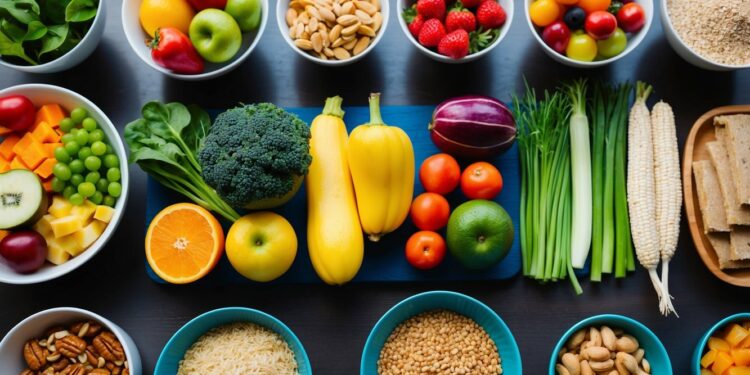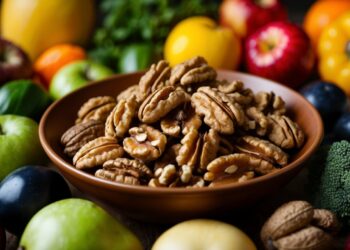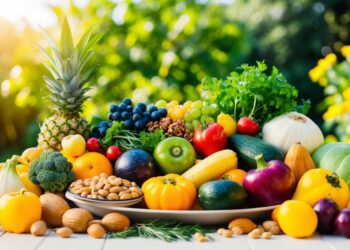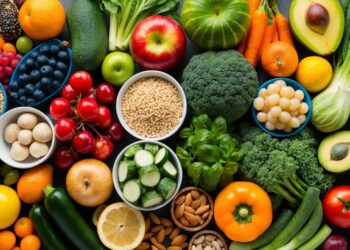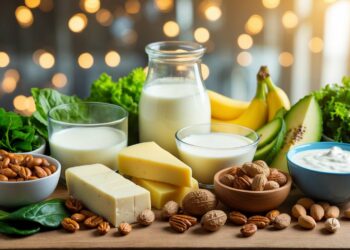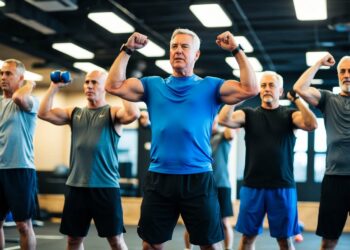As you get older and stay active, you might notice your energy needs shifting. The foods you choose can really change how you feel, especially if you want to keep moving and stay strong.
Meals built around lean protein, whole grains, fruits, and veggies help your body handle a busy lifestyle.
Balanced meals and snacks—like nuts, beans, or low-fat dairy—give you longer-lasting energy. Try to stay hydrated, and skip foods loaded with sugar, salt, or unhealthy fats if you want to feel your best.
Even small tweaks to your meals can help you feel more energetic and support your health every day. Sometimes it’s just about swapping out one habit for another.
Key Nutritional Strategies for Sustained Energy
If you want more energy, focus on smart food choices and how your body uses fuel. For men over 50, the right balance of nutrients and meal timing helps keep your metabolism steady and your energy up.
Balancing Macronutrients
Your body runs on protein, carbohydrates, and fats. Getting the right mix keeps your metabolism moving and helps you stay active.
Try filling your plate like this:
- 50% colorful vegetables and fruits
- 25% lean protein (chicken, fish, beans, tofu)
- 25% whole grains or starchy vegetables
Add healthy fats like olive oil, avocados, or nuts. They help you feel full and support your cells. Skip the extra sugar and processed stuff when you can. Eating enough protein daily helps you keep muscle as you age.
Power of Whole Foods
Whole foods—those that haven’t been heavily processed—give you more vitamins, minerals, and fiber. Fresh or frozen fruits and veggies, whole grains like brown rice or oats, and lean meats power your body way better than packaged snacks.
Fiber from beans, lentils, or whole grain breads slows digestion, so you get a steady stream of energy and feel full longer. Snack on raw nuts, yogurt, or fruit. Water beats sugary drinks for hydration and helps you absorb nutrients.
Timing Your Meals for Optimal Performance
Spread your calories over three main meals and a couple of snacks. Skipping meals can zap your energy and make you overeat later.
Try breakfast within an hour of waking. Add protein and a bit of healthy fat for steady energy. Don’t wait until you’re starving—eat every 3-4 hours if you can. Plan meals and snacks around your activity so you’re fueled before and after exercise.
Building a Plate: Food Choices for Active Men Over 50
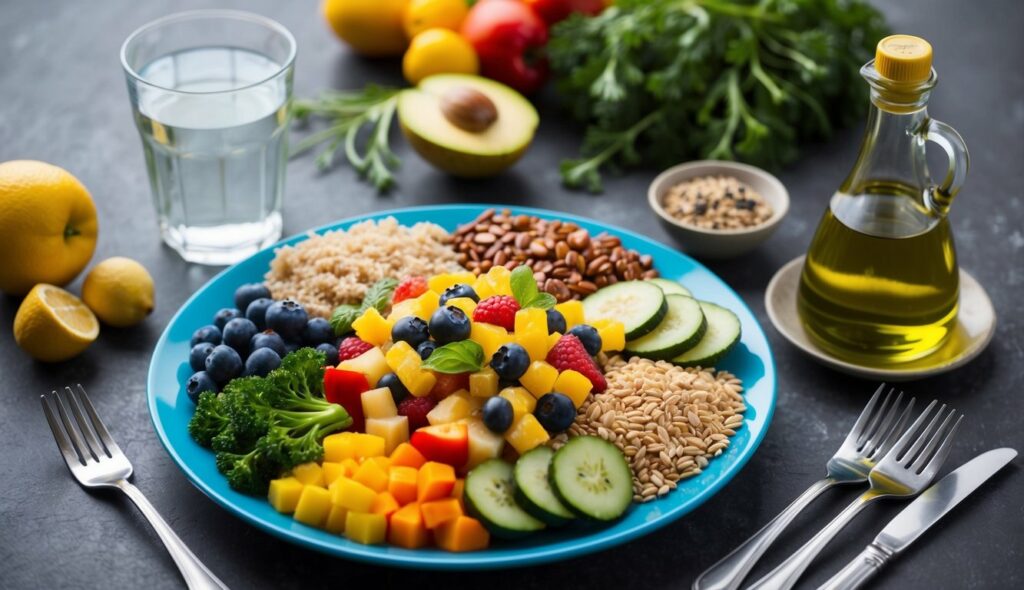
Eating for energy and health means picking foods that support muscle, keep your heart strong, and help you recover after activity. The right mix of veggies, fruits, proteins, carbs, and healthy fats keeps you going and supports long-term wellness.
Essential Fruits and Vegetables
Try to fill half your plate with a mix of fruits and veggies. Colorful picks like berries, oranges, spinach, broccoli, and carrots give you vitamins, minerals, and fiber. These nutrients help lower your risk of illness and offer steady energy.
Go beyond potatoes—leafy greens, tomatoes, and peppers pack more punch. Fresh, frozen, or canned (with no added salt or sugar) all work. Add fruit to breakfast, slip veggies into sandwiches, and snack on sliced bell peppers or apples.
Mix cooked and raw veggies for variety. Beans and peas count as both veggies and protein, and their fiber helps you feel full and supports digestion.
Smart Protein Sources
Include lean meats, seafood, dairy, beans, and nuts in your meals to get enough protein. Protein keeps your muscles strong and helps you feel satisfied. Men over 50 need steady protein to maintain muscle strength.
Try grilled chicken, turkey, tuna, or salmon. If you skip meat, go for eggs, lentils, chickpeas, or tofu. Dairy like cottage cheese, yogurt, or fortified soy products adds protein and calcium for bones.
Spread protein throughout your day—eggs or cottage cheese for breakfast, beans or lentil soup at lunch, lean meat or fish at dinner. Don’t just load up at night.
Choosing the Right Carbohydrates
Carbs are your body’s main fuel. Focus on whole grains for fiber and nutrients. Good picks: brown rice, oats, barley, whole-wheat pasta, and whole-grain cereal.
Limit refined grains like white bread and regular pasta, which can spike your blood sugar and leave you tired. Mix in beans, peas, and lentils for a combo of carbs, protein, and fiber.
Keep grain portions moderate. If you’re active, your body burns this fuel, but balance matters. For snacks, try whole-wheat toast with peanut butter or oatmeal with fruit.
Fats That Boost Performance
Healthy fats support your heart and help your body use vitamins. Pick foods like olive oil, avocados, nuts, and seeds. These give you fatty acids for joint comfort and brain health.
Limit foods high in saturated and trans fats—think butter, processed snacks, and fried stuff. Try drizzling olive oil on salads, adding avocado to sandwiches, or tossing nuts over yogurt or cereal.
Low-fat dairy can also offer some healthy fats. Including a bit of good fat in each meal helps you feel satisfied, keeps your energy up, and helps you absorb nutrients.
Supporting Bone, Heart, and Brain Health Through Nutrition
As you age, your body needs different nutrients to keep bones, heart, and brain in good shape. Smart food choices really can help you stay healthy and sharp.
Promoting Bone Strength and Muscle Mass
To keep bones strong, eat foods rich in calcium and vitamin D every day. Calcium builds and protects bones, while vitamin D helps you absorb it. Good sources: dairy (milk, yogurt, cheese), plus leafy greens like kale and broccoli.
Salmon, sardines, and eggs add vitamin D too. If you don’t get much sun, ask your doctor about a supplement. For muscle mass, get protein from chicken, fish, lean meat, eggs, beans, or tofu. These foods help your muscles stay strong so you can stay active.
Drink plenty of water and get potassium from bananas, potatoes, and avocados to support muscle function. Try to eat a mix of these foods each week.
Protecting Cardiovascular Health
Your heart deserves extra care as you age. Cut back on salty and processed foods to lower your risk of high blood pressure. Eat lots of fruits, veggies, and whole grains like oats and brown rice for more fiber.
Foods high in potassium—sweet potatoes, spinach, beans—help balance blood pressure. For healthy fats, go for nuts, seeds, and fish like salmon or mackerel, which are rich in omega-3s.
Keep iron in your diet with beans, lentils, and lean meats to help your blood carry oxygen. Too much saturated fat can raise your risk for heart disease and stroke, so keep an eye on that.
Boosting Brain Vitality
Your brain needs good fuel too. Eat foods rich in antioxidants—berries, dark leafy greens, nuts. Antioxidants protect your brain and support healthy aging.
Vitamins like B12 matter for brain health. You’ll find B12 in fish, eggs, meat, and dairy. Some older adults have trouble absorbing it, so a supplement can help.
Foods with phytochemicals—tomatoes, berries, spinach—may support memory and focus. Staying hydrated and eating balanced meals really can help your brain work better as you get older.
Smart Eating Habits and Lifestyle Factors
Eating well keeps your energy steady, your body strong, and your mind clearer. What you eat and drink, plus how you take care of your body, shapes your activity, weight, and risk for health issues like diabetes.
Hydration and Its Role in Energy
Your body absolutely needs water to do almost everything, including turning food into energy. Dehydration can make you feel tired, dizzy, or just off.
Active men over 50 should drink water throughout the day, not just during workouts. Sports drinks? Usually not needed, unless you’re doing long or super intense activity—they tend to have extra sugar and salt.
Try for at least 8 cups (about 2 liters) of water daily, and more if you’re exercising or it’s hot out. Signs like dark urine or a dry mouth mean you need more fluids. Herbal teas and water-rich foods (think fruits and veggies) also help keep you hydrated.
Managing Sugars, Salt, and Processed Foods
Too much sugar and salt can drain your energy and bump up your health risks, especially as you age. Added sugars in sodas or sweets give you a quick buzz, then leave you crashing. Whole fruits beat fruit juices or sugary snacks every time.
Processed foods and ready meals often hide loads of sodium and sugar. Cut back when you can.
Tips to cut sugar and salt:
- Check food labels for hidden sugars and sodium
- Cook at home with fresh ingredients when you can
- Pick lean meats and skip processed ones like bacon or sausage
- Flavor food with herbs or spices instead of salt
Too much sodium can raise your blood pressure, which isn’t great for your heart or energy. Keeping salt and added sugars low helps you stay active and keep a healthy weight.
The Role of Supplements and Functional Foods
Supplements can help if you can’t get all your nutrients from food. They’re not always necessary, though.
It’s smart to talk to your doctor before starting any supplement. This is especially true if you take medications or have health concerns.
Some men over 50 might need vitamin D, calcium, or B12. Our bodies just don’t absorb these nutrients as easily as we age.
Functional foods go beyond basic nutrition. Yogurt with probiotics or whole grains packed with extra fiber come to mind.
Adding them to your meals could support digestion or give your energy a boost. Maybe they’ll help your heart, too—at least, that’s what some folks hope.
Supplements can’t replace healthy food choices. Try to get most nutrients from balanced meals, and only use supplements to fill in the blanks.
Stick to the recommended doses. Nobody wants to deal with weird side effects if they can help it.
